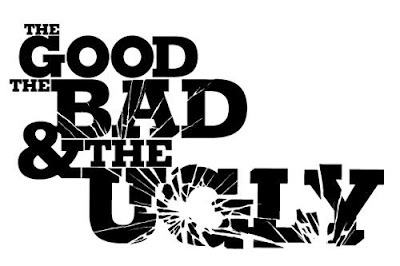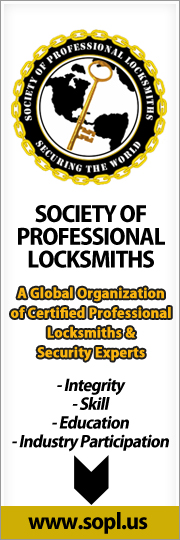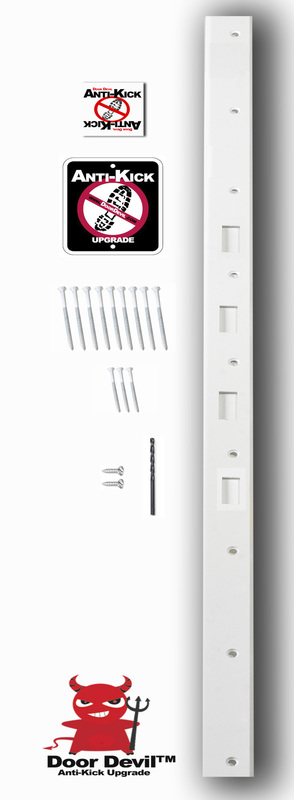|
Written By: Barry Campbell, Director of Operations SOPL There have recently been several news reports concerning the scammers who represent themselves as locksmiths in order to rip off people who are in need of emergency locksmith services. Three recent reports represent the different ways the issue and the locksmith industry can be portrayed, depending upon the efforts made by the reporters. Unfortunately, it is far too common for the media to cast a negative light on the locksmith industry as a whole, rather than to focus on the actions of the scammers. Regrettably, it is in reports relying on past industry “leaders” that the locksmith trade is made to look the worst. Because I would prefer to end this on a positive note, I'll save “The Good” report for last. “The Bad” The Bad report comes from CBS affiliate WBTW in Myrtle Beach, South Carolina. It is titled, “Consumer Alert! Locksmiths swindlers jack up the price when they show up,” (http://www.wbtw.com/story/24652591/consumer-alert-locksmith-swindlers) and is dated February 6, 2014. This report is rather typical of many recent reports. The title, alone, casts a negative light on the locksmith trade by failing to differentiate between professional members of the trade and those who are simply out to take advantage of people in desperate situations. "The Ugly” The Ugly report comes from another CBS affiliate, KUTV in Salt Lake City, Utah. It ran on January 30,2014 and was by reporter Matt Gephardt. Titled “Could Locksmith Licensing Curb Bait-and-Switch Industry Practices?” (http://www.kutv.com/news/top-stories/stories/vid_9397.shtml). Like “The Bad” report, the title impugns the entire locksmith industry with the suggestion that “bait-and-switch” is an industry practice. This report is written in an activist style. The title suggests that locksmith licensing could put an end to scammer activities, but even though the title is in the form of a question, no attempt is made by Gephardt to determine if licensing has, in fact, reduced bait-and-switch activities in states that already have licensing. It's not like he is not aware that other states had tried licensing; he reports that, “15 states currently have locksmith licensing requirements according to the Associated Locksmiths of America. So... if he is, as the title of the report suggests, actually trying to find out if licensing reduces bait-and-switch practices; would it not make sense to see what the results have been in the states that have introduced licensing? Yes, it would make sense to do so; but, no, he did not make any attempt to judge the effectiveness of licensing in the states that already do license locksmiths. We already know, and have repeatedly shown, that had he done so, he would have found that licensing is a failure in terms of protecting the consumer. Why ask the question and make no attempt to answer it? The question, itself, is the promotion of an agenda. He is not only suggesting an action, but implying results that, had he attempted to answer his own question, would have proven himself wrong. We have seen this type of activist reporting before, as a prelude to attempts to pass licensing legislation. “The Good” Finally, we have The Good report, “Local Locksmiths Warn Utahns about Overpricing Scheme” (http://www.ksl.com/?nid=148&sid=28551717), by Tania Mashburn and Debbie Dujanovic of KSL TV. Interestingly, this report comes from Salt Lake City, just like “The Ugly” report, and even includes an interview with the same local locksmith. But the similarities end there. Mashburn and Dujanovic put together a true investigative report. Unlike the other reports, this one is titled in a manner that does not instantly put the locksmith trade in a negative light. Not content with just an interview with a victim of a scammer, these intrepid reporters called several of the internet “locksmith” listings and caught the scammers in the act. When they were told by one of the scammers that a certain make and model vehicle would have been opened for the originally stated price, they called his bluff. They also physically checked the listed locations of several of the internet listings. Further, they provided information for real, legitimate locksmiths they discovered through there own research. And, instead of advocating political solutions that have been tried and failed, they provided the information for consumers to deal with any complaints they may have now. This was refreshing, honest, useful, thorough, but unfortunately rare reporting. "Why?" Is there a reason the reports that referenced ALOA also portrayed the industry negatively? Is there a reason many of the points made in “The Bad” report had as much to do with the internal trade conflict between small mobile operations and brick-and-mortar locations as they had to do with the differences between professional locksmiths and scammers? Is there a reason “The Ugly” report advocates a political solution that has already been repeatedly tried without success? With all the discussion within the locksmith industry about scammers, why aren't there more reports like “The Good” report, acknowledging that real, professional locksmiths are concerned about the public perception of the locksmith industry and are part of the solution, not part of the problem, with regard to consumer protection? Is there a reason “The Bad” and “The Ugly” did not emphasize the steps consumers can take now, if they feel they have been taken advantage of? There is no reason we shouldn't see more of “The Good” reports, but we do need to be aware of how the industry is being portrayed in the media and willing to enter public discussion of the trade. For the sake of the locksmith trade as a whole, we should not support “The Bad” cookie-cutter reports that make many legitimate locksmiths as suspect as scammers. It is worth noting that the scam victims in the other reports used credit cards. The large-scale scam organizations will quite happily take credit card payments. Nor should we support “The Ugly” activist reports where, again, the whole industry is considered suspect without government intervention. Locksmithing is a proud and noble craft. We need to treat it that way. If we do, we can expect more of “The Good.”  Barry Campbell, owner of Altic Lock Service and Managing Director of the Society of Professional Locksmiths. Barry is a graduate of Valparaiso University with a degree in Criminal Justice. He has worked in private security, investigations, and loss prevention. He is the author of A Homeowner's Guide to Residential Door Security. barry also is a former Professional member of the International Conference of Building Officials and a current Building Safety Professional member of the International Code Council. What are your feelings?
What do you think about how the locksmiths are being presented and who is to blame? Add your comments below.
1 Comment
3/12/2014 23:40:04
Unfortunately we also have many scammers here in the uk. The biggest scammers here are some of the national locksmith company's. Many have fake Google places listings with fictitious address and they buy up a lot of local phone numbers to make themselves look like local locksmiths. There prices can be as much as 4 times what the genuine local locksmiths charge.
Reply
Your comment will be posted after it is approved.
Leave a Reply. |
Categories
All
|
Services |
Company |
|






 RSS Feed
RSS Feed
